
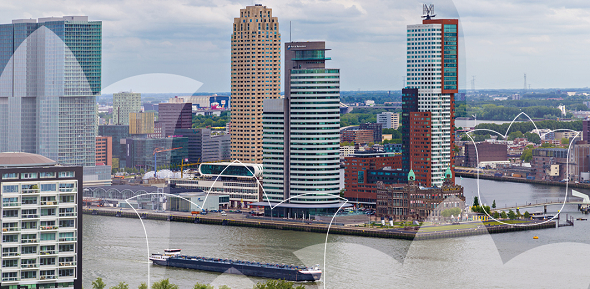
In a few decades, the majority of the people will live in urban areas. Already now, most of the world’s megacities are located in the coastal zone and many of these are situated in large deltas. It is there, where land and large water bodies meet, that sustainable development is under high pressure.
The host country for FIG Working Week 2020 the Netherlands has a long history of dealing with the challenges of building and managing a densely populated coastal country, with a land area of which nearly half is below sea level. The Dutch have an extensive experience in this field.
Surveyors have played a crucial role in land and water management. Their role is even more crucial today when we have to protect our countries from the effects of sea- level rise, floods and droughts and other natural disasters caused by climate change. Protection of nature and natural resources demands our attention and asks us to act now. This requires smart surveyors and integrated approaches for sustainable land and water management.
The FIG Working Week 2020 in Amsterdam is addressing the following overall theme:
This theme is both relevant for the Netherlands and internationally in a world where drinking water is a scarce resource, waste water needs to be recycled rather than seen as waste, where the sea needs to be better mapped and managed, where land resources need to be protected against sea-level rise, and where land-based fresh water habitats are threatened.
The overall theme, Smart Surveyors for Land and Water Management, is built up by the following sub-themes:
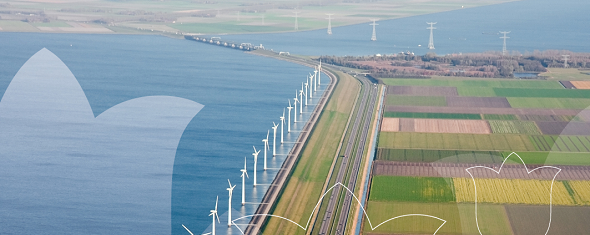
Rapid urban growth, smart energy, cleaner mobility, and ‘land rights for all’ are some of the challenges demanding innovative surveying approaches and technologies. Sensing technologies, spatial data processing technologies and related approaches are already available. Use and improve them to become future proof, Smart Surveyors!
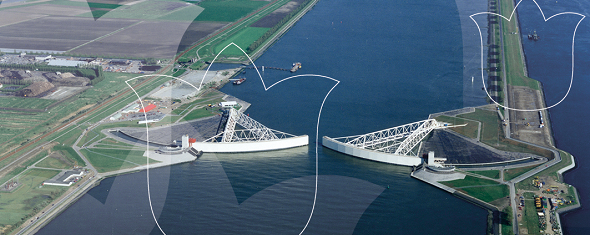
Without integrated land and water management, the Netherlands as also other coastal countries cannot sustain its agricultural and urban development. Climate change, though, increases the risks of sea and riverine floods and extended drought periods and complicates this management task. Unorthodox measures are called for. Get familiar with these measures and discuss them from your critical surveyor perspective.
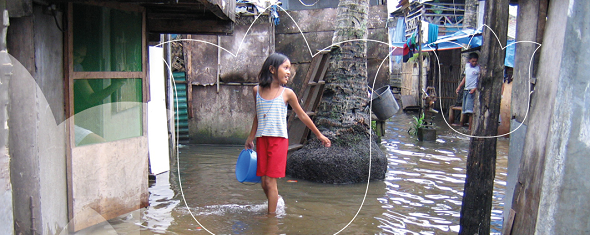
The countdown begins, only one decade to go to accomplish the Sustainable Development Goals. The SDGs are the blueprint to achieve a better and more sustainable future for all and surveying professionals have a key role to play. How did we, as surveyors, contribute to ending poverty, improve health and education, reduce inequality, and spur economic growth – all while tackling climate change and working to preserve our oceans and forests? In addition, what will be our role for the coming 10 years?
FIG Working Week is the main event of the year for all ten FIG Technical Commissions, Networks, Task Forces and Permanent Institutions. The main objective of the FIG Working Week is to bring together experts from academia, governments/public administration and industry to report on recent developments, trends and research results. Technical session speakers will present their research selected through the open call for papers procedure. This is an exceptional platform for industry practitioners, innovators, scientists, researchers, academics and students to discuss current research which is shaping a new world society.
We invite you to submit:
We encourage you to consider the overall theme of FIG Working
Week 2020: Smart Surveyors for Land and Water Management and the
three main topics when you submit your abstract.
Many topics are multi-disciplinary and are relevant in both
developing and developed world contexts. We encourage
submissions of cross-disciplinary nature cutting across many
disciplines/subject-areas.
Proposals for papers non-peer review and peer review are requested in all topics of interest of the following:
Commission 2 promotes professional surveying education to support the three themes of this Working Week. We are looking for papers that highlight practices of continuous review in education, innovative teaching approaches and lifelong learning solutions. Sessions include:
Submissions on the following topics are particularly welcome:
In line with the overall theme of FIG Working Week 2020, Commission 4 focuses on the following topics with the motivations dedicated to the three sub-themes. Each of the topics embodies the aim of producing smart surveyors based on the use of cutting-edge technology with the challenges in the integrated land and water management, and the contribution of hydrography towards achieving the Sustainable Development Goals.
Commission 5 focuses broadly on practical aspects of surveying that support many of the UN Societal Development Goals (SDGs) including Clean Water and Sanitation (Goal 6); Industry, Innovation and Infrastructure (Goal 9); Sustainable Cities and Communities (Goal 11), Climate Action (Goal 13) and Life on Land (Goal 15). Sessions include:
The domains covered by Commission 6, include the support to the development and implementation of projects in several domains of civil, mechanical and industrial engineering, as well as energy production and environmental safety, and also the promotion of the application of innovative and advanced methodologies and technologies in the broad domain of engineering surveying. At FIG Working Week we want to highlight the themes:
Commission 7 focuses on the relationship between people and land and the systems and technologies to administer land rights. Current key topics in the commission are:
Land and water management is at the heart of spatial development. In view of global changes that have a local impact, a sustainable development requests a resilient approach towards for example the impact of climate change; environmental degradation; water, food, and energy scarcity; and economic uncertainty. Spatial planning touches upon the relation between land and people. From this perspective, we would like to invite papers (research , best practices or lessons learned) on the following themes:
Without excluding other themes relevant to spatial planning and development in our profession, which are not mentioned above.
Smart surveying and data standards
The Permanent Institution of History for Surveying and Measurement invites contributions on the history of surveying and measurement, and the techniques and instrumentation involved.
Papers are also invited on the areas covered by FIG Networks:
FIG Young Surveyors Network would like to see contributions from young surveyors in all ten Commissions.
The FIG Standards Network provides a connexion to the world of Standards bodies through:
The Standards Network is particularly active in ISO/TC 211 (Geographic Information/Geomatics), ISO/TC 172 SC6 (Survey Instrument Standards) and non-ISO type Standards initiated by and/or which FIG is deeply involved: (International Property Measurement Standards Coalition, International Land Measurement Standards Coalition, International Construction Measurement Standards …)
with the following topics:
This year, at the FIG Working Week, there will be French-speaking sessions. If you would like to contribute to these sessions, please send an email to fig@fig.net.
The Local Organizing Committee of the FIG Working Week 2020 invites you to submit in particular a paper covering one or more of the sub-themes of the Working Week. For each sub-theme, the author of the best paper is awarded a typical Dutch prize.
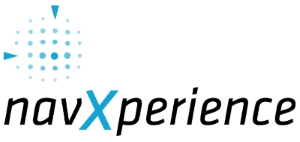 |
NavXperience and FIG would like to announce that the best peer review paper in the field of Positioning and Measurement (FIG Commission 5) will be chosen for the NavXperience award. The award winner will receive a complimentary registration for the next FIG Working Week in Accra, Ghana. |

The Survey Review Biennial Prize is sponsored by Survey Review, a learned journal covering the fields of positioning and measurement, engineering survey, cadastre and land management, and spatial information management.
The prize will be awarded to a Peer Review Paper written by a Young Surveyor (under the age of 35 or within 10 years of qualifying). In the registration form you can tick a box indicating that you want your paper to be taken into consideration for the Prize. Survey Review Ltd will fund the prize of £2,000 to cover travel, accommodation and registration for the Working Week. Payment will be made to the individual once the paper has been presented, with a Trustee of Survey Review presenting a certificate to the individual during the Working Week. If the paper is jointly authored and presented, the prize value remains £2,000 and can be paid to one of the individuals, or shared between them at their choice.
For more information on Survey Review see: www.tandfonline.com/loi/ysre20
Chief Editor:
Members:
Any inquiries on call for Papers, abstracts, peer review process and technical programme, please contact the FIG Office (Email: fig@fig.net, tel +45 3886 1081).